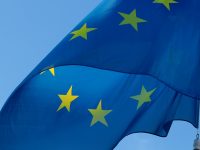The new EU Copyright Directive is causing a lot of unhappiness. While it will affect us PR people, almost 4.5 million Europeans have signed a change.org petition to stop Article 13, the part of European copyright legislation created with the intent to better protect creativity and find effective ways for copyright holders to protect their content online.
The directive can be confusing, so here we've tried to answer the key questions with information that's publicly available:
1. What is the EU Copyright Directive?
The new directive modernises EU copyright rules which date back to 2001, in a world without social media, video on demand, digitised museum collections or teachers providing online courses.
The political agreement reached in February 2019 will adapt copyright rules to today's world, where music streaming services, video-on-demand platforms, news aggregators and user-uploaded-content platforms have become the main gateways to access creative works and press articles.
The agreement needs now to be confirmed by the European Parliament and the Council of the EU in the coming weeks.
2. What is Google's stance on the new regulation?
Google has been particularly vocal about the proposed law, which it says could "change the web as we know it".
Google is considering pulling its Google News service from Europe as regulators work toward the controversial copyright law.
The European Union’s Copyright Directive will give publishers the right to demand money from the likes of Facebook Inc. and other web platforms when fragments of their articles show up in news search results or are shared by users.
Google has said it doesn’t make money from its news service so it’s unlikely the company would take a financial hit from withdrawing. But news results keep mobile users coming back to its search engine, where they often pursue queries that generate lucrative ad revenue.
3. What will the new directive mean to publishers?
If publishers or producers fail to exploit the rights that authors and performers have transferred to them, authors and performers will be allowed to revoke their rights.
European press publishers will have a new right, which aims to facilitate the way they negotiate how their content is re-used on online platforms. It will give journalists the right to receive a greater share of the revenues generated by the online uses of press publications. This right will not affect citizens and individual users, who will continue to enjoy and share news hyperlinks as they do today.
4. What are the benefits of the legislation according to the EU?
Users will benefit from the new licencing rules which will allow them to upload copyright protected content on platforms like YouTube or Instagram legally. They will also benefit from safeguards linked to the freedom of expression when they upload videos that contain rightholders' content, i.e. in memes or parodies. The interests of the users are preserved through effective mechanisms to swiftly contest any unjustified removal of their content by the platforms.
The new Directive reinforces the position of European authors and performers in the digital environment and enhances high-quality journalism in the EU. According to the regulators, it brings:
- Tangible benefits to all creative sectors, specifically creators and actors in the audio-visual and musical sectors, by reinforcing their position vis-à-vis platforms to have more control over the use of their content uploaded by users on these platforms and be remunerated for it.
- The principle of an appropriate and proportionate remuneration for authors and performers will be laid down for the first time in European copyright law.
- Authors and performers will enjoy access to transparent information on how their works and performances are exploited by their counterparts (publishers and producers). This will make it easier for them to negotiate future contracts and to receive a fairer share of the generated revenues.
5. What are the potential disadvantages of the legislation?
Critics say it would be impossible to pre-emptively license material in case users upload it.
German MEP Julia Reda suggested services would have to "buy licenses for anything that users may possibly upload" and called it an "impossible feat".
Article 13 does not force companies to filter what users are uploading, although critics say companies will be left with no choice. YouTube already has its Content ID system, which can detect copyright-protected music and videos and block them. But critics say developing and implementing this type of filter would be too expensive for small companies or start-ups.
Others have warned that algorithms often make mistakes, and might take down legitimately used content.
Google has been among the most vociferous critics of the law and has lobbied hard against the legislation. But tech titans aren't the only opponents of the plans. No one will be exempt from the link tax, which will severely disadvantage small and independent publishers who rely on aggregators and social media to attract people to their content.
Platforms will have to adopt a form of automated content monitoring to meet the requirement for upload filters. This will likely take the form of bots that assess anything that's posted for copyright infringements by comparing the content with databases of protected works. These upload filters will struggle to tell the difference between copyright infringements and legal parodies.
Some of the content uploaded on the Internet infringes the copyright of rightholders (which are often not the content creators but intermediaries and investors such as recording or film studios) and content creators complain that due to the digital evolution, they make less money than they used to (the so-called ‘value gap’). This does not reflect the reality accurately, specifically in the case of the music industry that year after year announce that their incomes keep increasing.
The measures required by Article 13 to avoid liability will be expensive to implement and will thus make it harder for European start-ups to grow and compete with big US platforms that already have these filters in place (such as YouTube with ContentID).
6. What are the key timings around the directive?
- In September 2016, the European Commission proposed to modernise EU Copyright rules for European culture to flourish and circulate, as part of the Digital Single Market Strategy.
- 5 July 2018 - The European Union has rejected controversial legislation intended to reform online copyright
-
12 September 2018 - The European Parliament has voted in favor of the Copyright Directive
- In December 2018, EU co-legislators agreed on new rules to make it easier for European broadcasters to make certain programmes available on their live TV or catch-up services online.
- 13 February 2019 - The European Parliament, the Council of the EU and the Commission found a political agreement to make the copyright rules fit for digital era in Europe and bring tangible benefits to all creative sectors, the press, researchers, educators, cultural heritage institutions, and citizens.
- The agreed text must now be formally confirmed by the European Parliament and the Council. Once confirmed and published on the Official Journal of the EU, the Member States will have 24 months to transpose the new rules into their national legislation.





